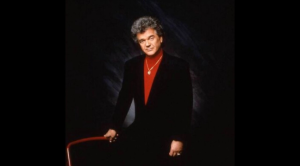
Conway Twitty’s Heart-Wrenching Ballad: “To See My Angel Cry”
Conway Twitty, a name synonymous with country music’s golden era, possessed a unique ability to distill raw emotion into a sonic tapestry that resonated deeply with audiences. Among his extensive catalog of hits, “To See My Angel Cry” stands as a poignant testament to his artistry. Released in 1969, this ballad became a cornerstone of Twitty’s repertoire and a touchstone for countless listeners who have experienced the pain of love lost.
Background
The song’s genesis lies in the heart-wrenching reality of human connection. Love, a force as powerful as it is fragile, can bring immense joy but also profound sorrow. Twitty, with his innate understanding of the human condition, managed to capture the essence of this emotional turmoil with a lyrical and melodic precision that is both heartbreaking and inspiring.
“To See My Angel Cry” is more than just a song; it is a confessional, a plea for understanding, and a mournful lament. The lyrics paint a vivid picture of a man consumed by regret and remorse. The image of a loved one weeping is a powerful one, and Twitty’s delivery is imbued with a raw authenticity that pulls the listener into the emotional core of the song.
The musical arrangement is equally compelling. The gentle melody, underscored by the subtle instrumentation, creates a melancholic atmosphere that perfectly complements the song’s lyrical content. Twitty’s vocal performance is nothing short of extraordinary. His voice, rich with emotion, conveys a depth of despair that is both heartbreaking and cathartic.
Beyond its emotional impact, “To See My Angel Cry” is a testament to Twitty’s skill as a songwriter. His ability to craft lyrics that resonate on a profound level is a rare talent. The song’s themes of love, loss, and regret are universal, making it relatable to listeners from all walks of life.
In the realm of country music, where storytelling is a revered art form, Twitty stands as a master. “To See My Angel Cry” is a prime example of his ability to connect with audiences on a deeply personal level. It is a song that has stood the test of time, continuing to evoke powerful emotions in listeners decades after its release.